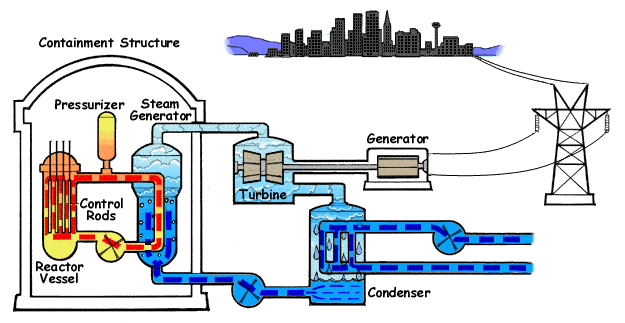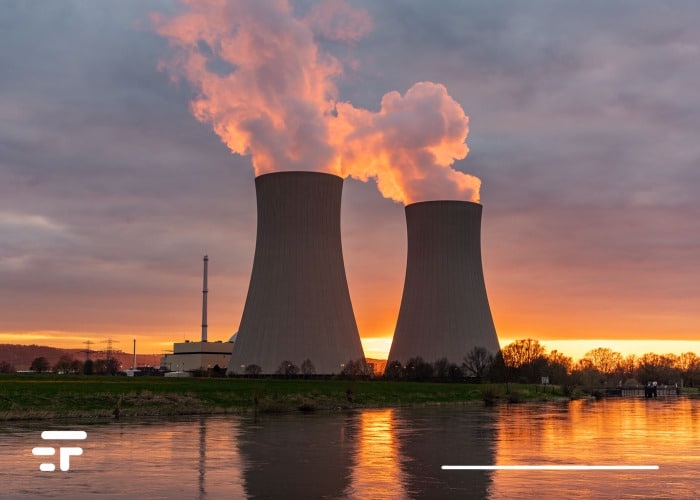If you think about it, thenuclear energy it's really an amazing thing: harnessing Einstein's theory of special relativity (E = MC²) to create powerful low-carbon on-demand energy. Not bad really to stop dependence on fossil fuels and undo the effects of climate change.
Still, recent heat waves have highlighted a significant problem with our current nuclear power plants. A problem that can only get worse, at present, and could make some nuclear power plants useless before long.
What is it about?
France has recently had to reduce production in six of its nuclear reactors. For example, among the six plants affected, the Golfech one was "downsized" by 1000 MW. A bit like having to suddenly cut off the power to 2000 homes. A significant problem, which in large numbers has created panic in the French energy network, also given the European context of energy crisis.
The cause? The intense heat wave that hit Europe and the UK. That's right: abnormal heat was "enough" to bring the reactors to their knees, altering the temperatures of the waterways that should cool them.
As you know, in nuclear power plants water is used: when this comes into contact with the reactors, it is converted into steam which is pushed out through a turbine that generates electricity: then it passes through a condenser which cools it back to a liquid state, to start over. the cycle.

The condenser also requires a significant amount of water. It works like a heat exchanger, transferring heat from the hot water/steam flowing in the reactor to the much cooler water outside. Because the condenser requires a constant supply of cold water, it cannot recycle its coolant like the reactor. It needs an extra supply that returns to nature when it runs out. This is why most nuclear power plants are located near large bodies of water such as rivers, as they need it for cooling.
Nuclear reactors heat rivers
It is a consequence of their operation: the reactors discharge waste thermal energy into waterways. This obviously does not contribute to climate warming, but it can damage ecosystems: this is why nuclear power plants have a set temperature limit. They cannot heat the waterways beyond a certain limit, or the reactors automatically shut down.
Well, in the recent heat wave, rivers have warmed up, causing the water intake temperature to overheat. This quickly caused the rivers to reach their thermal capacity: and the power stations had to reduce production.
Do you have any idea what the increase in these heat waves will mean? The first similar problems at the French power plants date back to 2003. The penultimate ones date back to 2018, 15 years later. The ones we are talking about, in 2022, happened just 4 years after the previous ones. As the pace of these incidents is expected to increase, nuclear power plants will become progressively more inefficient: the cost of maintaining them may even make them unprofitable.
Are nuclear power plants doomed because of the heat?
Not exactly. Let's take France: it is equipped with 56 nuclear power plants, and of these only 9,3% have been affected by heat waves. Some rivers are colder than others, or have a larger volume of water which allows them to absorb more heat. Other nuclear power plants, however, use sea water, or are cooled with helium.
In summary? Nuclear energy itself is not a doom. But many plants do.
In the short run, all nuclear reactors that are located far downstream of small rivers they will be incredibly vulnerable to this problem. They could become unusable during the summer months, and generally not very convenient. In the medium term, nuclear power plants located on larger and colder rivers could also have the same problem.
This is yet another demonstration that this "self-produced" catastrophe will influence many aspects of our lives, even those we don't expect. Adapting, surviving, overcoming the problem is perhaps the greatest challenge of our species.
We'll make it? We have no alternatives.


